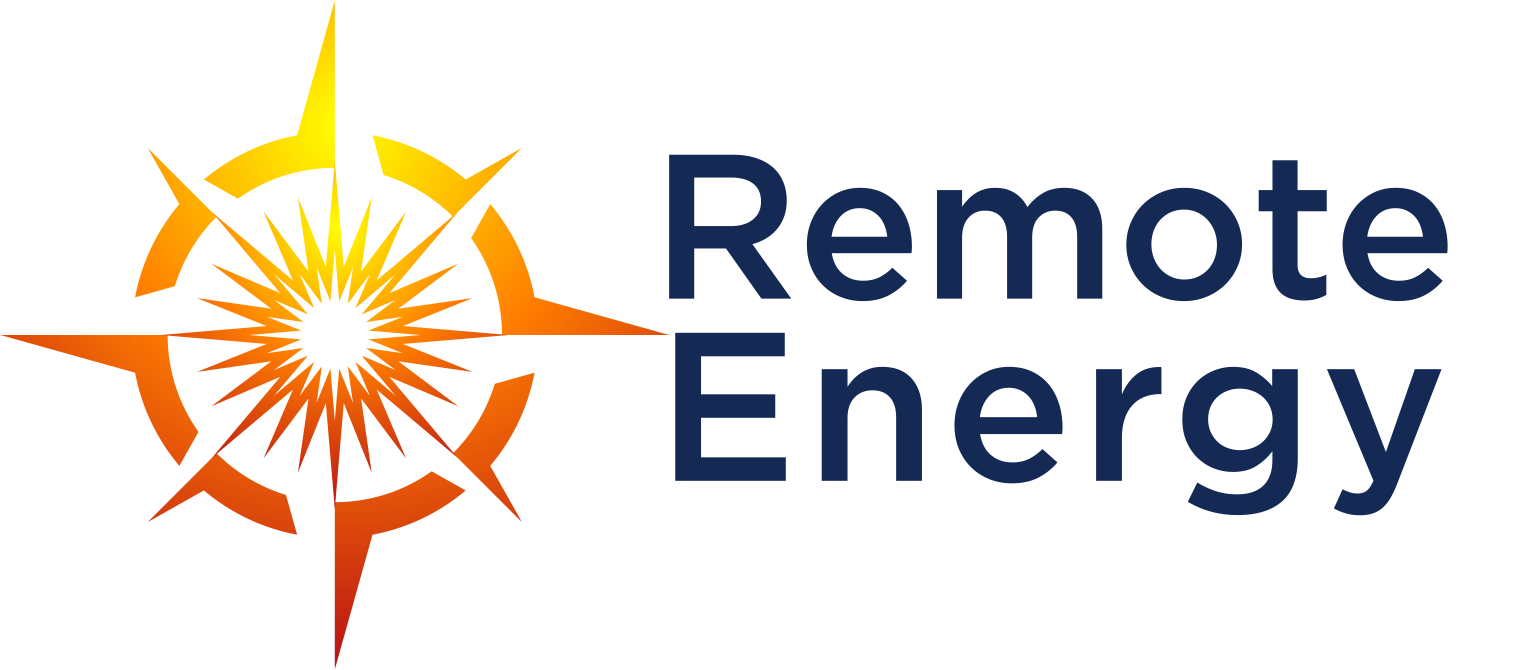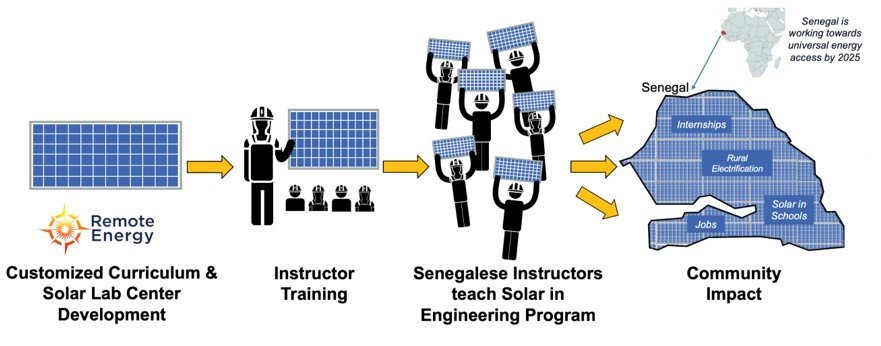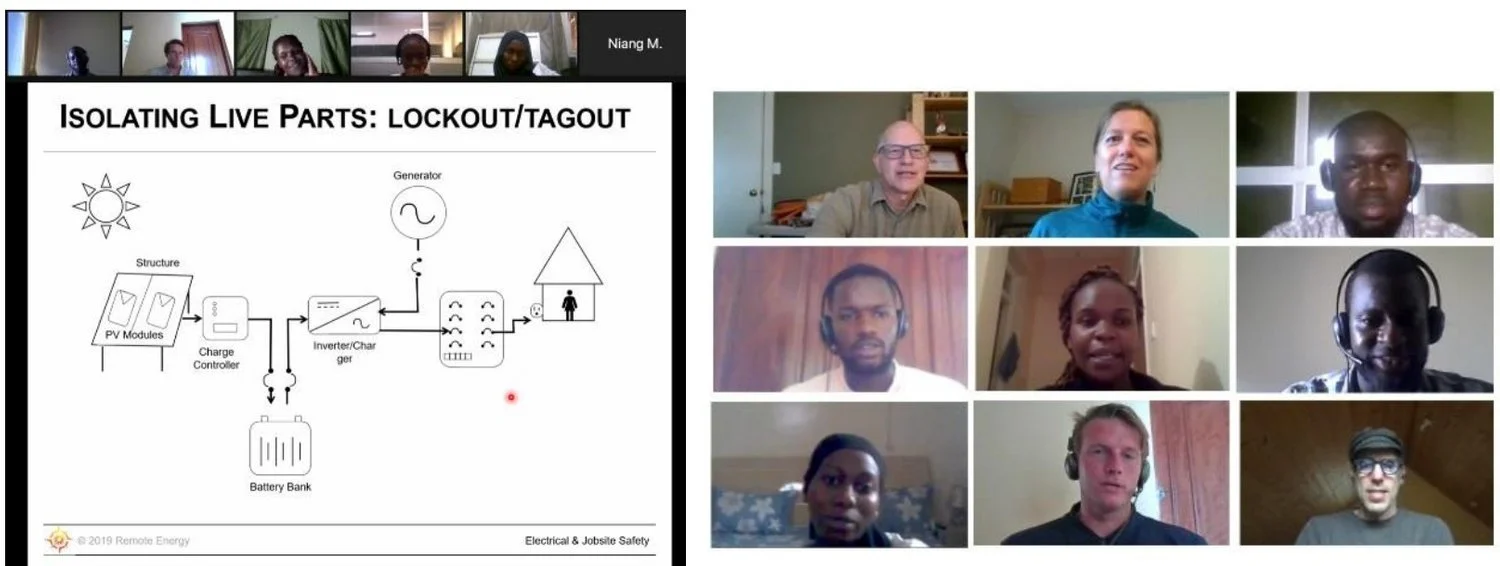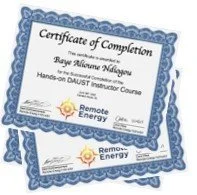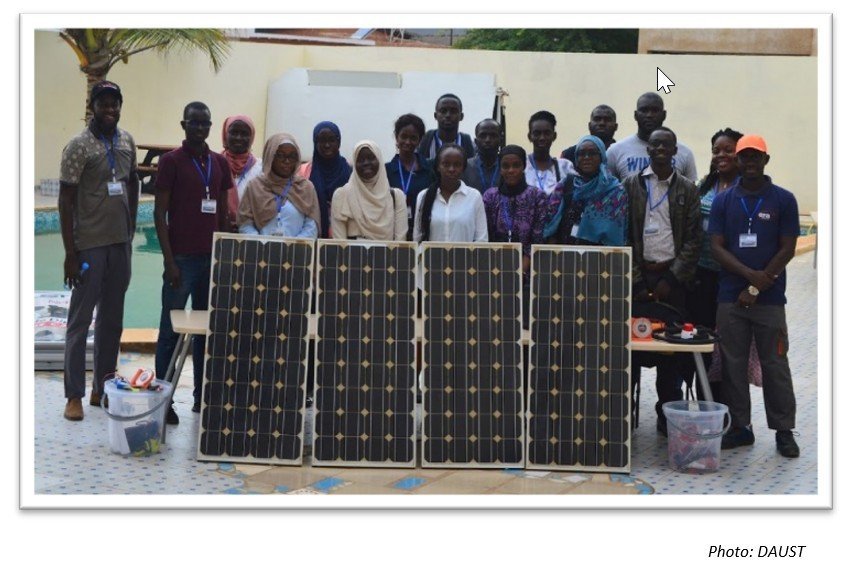DAUST Training Center Inspires the Next Generation of Senegalese PV professionals
Many obstacles hinder the widespread use of solar energy to meet the needs of rural communities. In much of Africa, the lack of technical capacity among would-be installers and PV system managers is of primary concern. Additionally, in many under-represented regions, the lack of the development, coordination and adherence to recognized installation standards has impacted both the quality and safety of PV installations and the ability to provide energy services to rural households. This is especially evident in Senegal where less than 60% of rural households have modern, clean energy in their homes.
To address this issue, and Senegal’s ambition to provide universal energy access by 2025, Remote Energy has developed a successful training model that is being implemented regionally by a partnering educational institution. Remote Energy formed a consortium with The Dakar American University of Science and Technology (DAUST) and Outback Power - an EnerSys company. This program was funded by the Standards Alliance, which is a public-private partnership between the United States Agency for International Development (USAID) and American National Standards Institute (ANSI) that focuses on providing capacity building assistance to partner countries. The solar technical training program was created on site at the DAUST campus with the intention of promoting community solar education – focused ultimately on the development of standards and jobs in the off-grid / rural solar sector. With this project, like all of Remote Energy’s work, a particular focus was placed on inclusion, diversity and gender equity as women are underemployed both regionally and industry wide.
Customized Curriculum Development
The first step of this project was to develop a curriculum that was regionally and culturally relevant for the Senegalese instructors and students. Remote Energy’s curriculum team collaborated closely with DAUST instructors and local contacts to ensure that content was aligned with the West African ECOWAS/ECREEE Off-grid Job Task Analysis for PV installers and focused on safety and established ANSI standards. The curriculum, available in both French and English, was designed to be presented online or in person and contains lots of opportunities to engage learners with hands on activities and exercises.
Hands-On training center development
A competent PV technician requires experience designing, installing, commissioning and troubleshooting live PV systems. The DAUST PV program included a training center development component which utilized PV equipment supplied by Outback Power. Four different PV systems were installed on campus – each purposely varying in size and function to provide numerous options for diverse training modules. Each of the installed systems also contained batteries which was a requirement made evident by the need for energy storage with PV systems in Senegal. Each system was installed with a minimal amount of PV, ranging from 500 W to 2200W to allow for future growth. All of the PV was procured locally and installed by a qualified Senegalese firm.
Instructor Training
Before the PV training program was made available to students, Remote Energy conducted an intensive 6-week instructor training program to prepare DAUST’s STEM faculty to teach the new curriculum. Capable and confident PV Instructors require both technical and non-technical skills. Remote Energy’s master trainers conducted weekly live Zoom lectures which provided an important perspective and detail required to teach the new curriculum. It was critical that new instructors understood and could safely teach hands-on lessons using small equipment and the Outback Power systems installed in the training center. Plenty of time was dedicated to giving DAUST instructors an opportunity to practice teaching technical topics and receive individualized evaluation from their peers and from Remote Energy’s mentors. As a special bonus to the instructor development program, Remote Energy invited five women trainers from Kenya (also participants in Remote Energy’s instructor training program) to participate in the DAUST instructor course and to help with the instruction as part of their ‘practice teaching’ obligations in the mentorship program.
DAUST Instructors Build a Permanent PV Program
Once the instructor training program was complete, DAUST offered the 6-week, online PV training opportunity to the general public. The student course “Introduction to Battery Based PV Systems”, consisted of 30 students recruited by DAUST.The class contained live virtual Zoom lectures which provided human connectivity and opportunities for students to ask questions, network, and collaborate.Also included was a full day of in-person training where students were given an opportunity to complete activities with PV equipment and explore the PV systems installed at DAUST’s campus.
The PV training program proved to be a huge success and DAUST immediately adapted and adopted the program into their existing engineering program. With the hands-on facility complete and the PV curriculum in place, DAUST now had the capacity to offer both fundamental PV courses and more advanced hands-on trainings. These classes were specifically designed to feed the growing solar workforce and expand the access and familiarity of regional installation standards
Community Impact
Especially amid the unprecedented challenges posed by the global health pandemic, this PV capacity building model has proved to be highly impactful. Senior leadership at DAUST has reported an explosion of interest from both staff members and students. DAUST received over 700 applications for the first solar training course they offered, and they expect to be able to train hundreds of new technicians per year.
Among other things, a new solar club has been formed and solar powered vehicle competitions take place. The lab has become so popular that DAUST has begun hosting visits from local secondary schools. The students find an exceptional opportunity to see not just a location for their future STEM education but inspiration and motivation to pursue vocational training for the PV industry. DAUST showcases and makes accessible PV applications and battery technology that give young students a rare chance to connect the needs of their families and friends to the clean energy and climate movements – encouraging community solar development.
There has also been a notable integration when it comes to the local economy. DAUST has been approached by numerous groups with the intent to collaborate on training and workforce development. This is the positive, critical step forward that constructs a safe and standardized PV industry, and develops an inclusive workforce that promotes economic empowerment, and educational equity.
